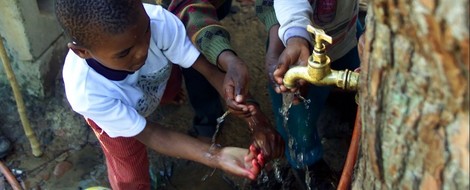Your podcast discovery platform
Curious minds select the most fascinating podcasts from around the world. Discover hand-piqd audio recommendations on your favorite topics.

piqer for: Global finds Doing Good
Marie von Hafften is a 2018 Story Fellow with the Solutions Journalism Network, curating reporting on responses to social problems. She also writes The Response, the organization's weekly newsletter. Marie studied international affairs and public policy at Columbia University and has worked for UN Women, UNOCHA and KYRS-Thin Air Community Radio. Her writing and photography have been published by PRI/GlobalPost, Christian Science Monitor, Next Billion and Global Envision.
How Cape Town Was Saved From Running Out Of Water
This spring, Cape Town narrowly avoided becoming the first major metropolis to run out of water. Three consecutive years of drought left South Africa’s second largest city with near-empty water reserves, a problem increasingly common around the world.
The city responded by enforcing strict water use policies and announcing “Day Zero,” the projected moment when water levels would fall so low that the city would simply turn off the taps.
This apocalyptic notion prompted water stockpiling and panic, caused a drop in tourism bookings, and raised the spectre of civil unrest. It also worked.
Water use fell. Not as much as needed, but enough to push Day Zero from as early as April 12, 2018 to 2019.
“It was the most talked about thing in Cape Town for months when it needed to be,” says Priya Reddy, the city’s communication director. “It was not a pretty solution, but it was not a pretty problem.”
A fascinating case study of aggressive citywide messaging, the Day Zero campaign is successfully reducing water consumption, but risks focusing too much attention on a doomsday date rather than the ongoing need to conserve and recycle water. With the timeline pushed out, Cape Town is now trying to keep residents from slipping back into old patterns of water consumption.
